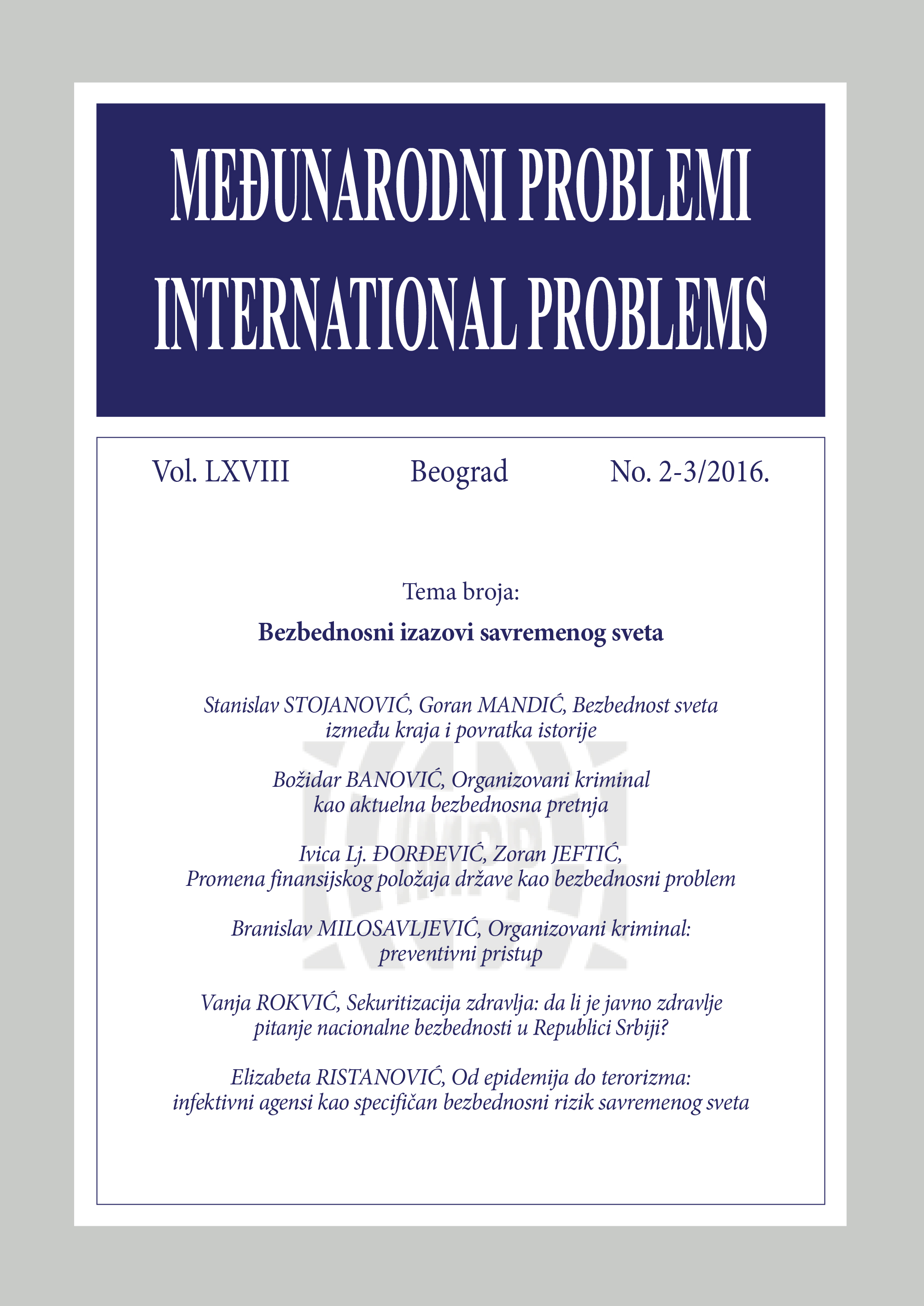Bezbednost sveta između kraja i povratka istorije
World security between the end and “return” of history
Author(s): Stanislav Stojanović, Goran J. MandićSubject(s): Politics / Political Sciences
Published by: Институт за међународну политику и привреду
Keywords: security; globalization; inequality; terrorism; demographic boom; interventionism; historical cycles
Summary/Abstract: Globalization as a social concept based on the principle of universalism announced the beginning of a new era and a model of international society, which would mean a sort of end of historical cycles. Optimistic faith in progress was one of the driving ideas of this, one of the most popular concepts of the global society. Proponents of globalization have claimed that the triumph of the West in the Cold War competition confirmed the superiority of the liberal model and represented a break with the real political perception of international politics. In this way, as argued, the conditions were created for the societies around the world to start their own reconstruction, creating a global culture and universalization of democratic governance, permanently overcoming war and establishing the lasting peace. The nature and dynamics of relationships in international politics unambiguously confirmed that the social and political reality has not developed as announced by the proponents of globalization, at the beginning of the last decade of the twentieth century. The modern world fell into a time of confusion, uncertainty and insecurity, growing into a global risk society. Strong rapprochement of nations, political communities and cultures and intensifying their interdependence encouraged more intense disagreement, the emergence of new national models, radicalizing definitions of identity to the most devastating forms. Globalization has not transformed the world, and the concept of global governance of the world proved to be a failed attempt, manifesting a variety of system dysfunctions. At the same time, the more pronounced interdependence of contemporary societies, based on the technological achievements of the postindustrial world, has expanded the range of issues that require the global approach.
Journal: Међународни проблеми
- Issue Year: LXVIII/2016
- Issue No: 2-3
- Page Range: 151-171
- Page Count: 21
- Language: Serbian

